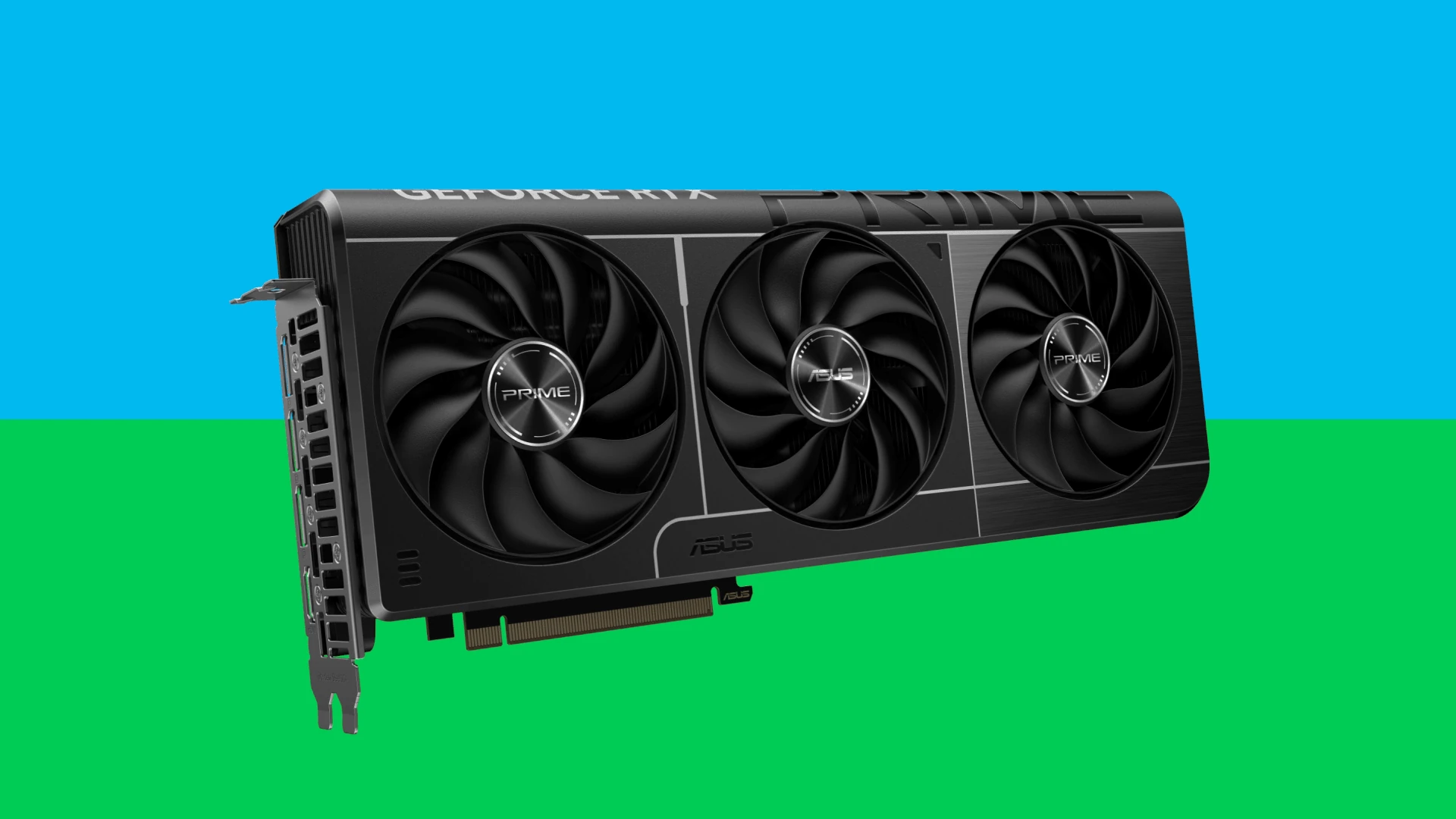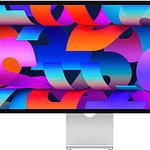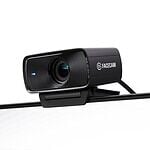NVIDIA’s GeForce RTX 5080 graphics card is set to launch on January 30, 2025. The RTX 5080 features 16GB of GDDR7 memory and is priced at $999. This new GPU is part of NVIDIA’s RTX 50 Series, built on the advanced Blackwell architecture. Being half the price of the flagship model (RTX 5090), this card is expected to be a best seller for gaming enthusiasts and will likely be the card in the highest demand.
The RTX 5080 promises significant performance improvements for gamers and creators alike. It incorporates fifth-generation Tensor Cores, enhancing AI capabilities and enabling DLSS 4 technology. This combination aims to deliver superior frame rates and image quality in games.
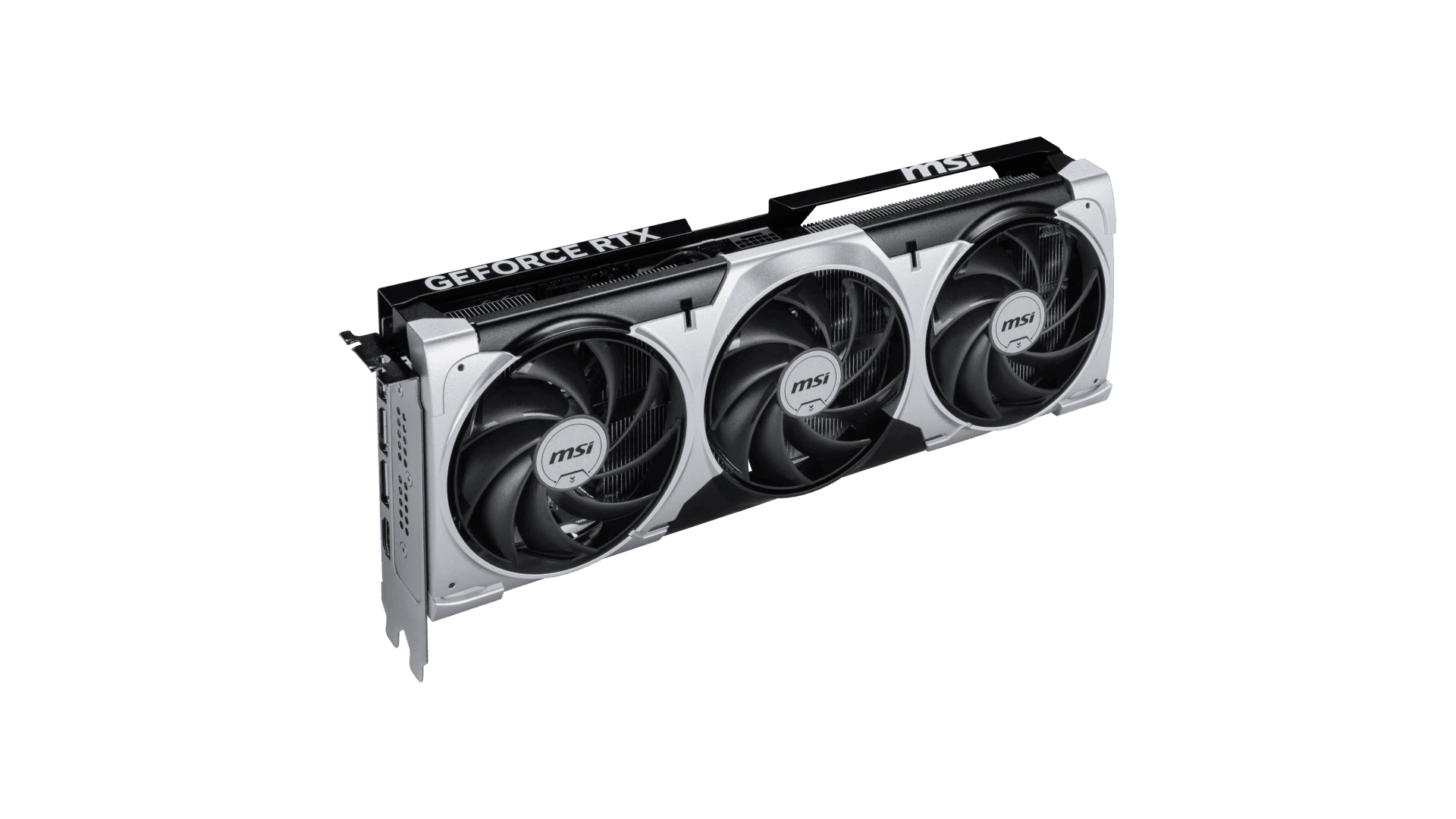
NVIDIA’s latest offering continues the company’s trend of pushing graphics technology forward. The RTX 5080 represents a balance between high-end performance and more accessible pricing compared to the top-tier RTX 5090 model.
NVIDIA RTX 5080 Specs
| Feature | GeForce RTX 5080 |
|---|---|
| NVIDIA CUDA® Cores | 10752 |
| Shader Cores | Blackwell |
| Tensor Cores (AI) | 5th Gen, 1801 AI TOPS |
| Ray Tracing Cores | 4th Gen, 171 TFLOPS |
| Boost Clock (GHz) | 2.62 |
| Base Clock (GHz) | 2.30 |
| Standard Memory Config | 16 GB GDDR7 |
| Memory Interface Width | 256-bit |
| Technology Support | Blackwell |
| Ray Tracing | Yes |
| NVIDIA DLSS | DLSS 4, Super Resolution, DLAA, Ray Reconstruction, Frame Generation, Multi Frame Generation |
| NVIDIA Reflex | Reflex 2, Low Latency Mode, Frame Warp (Coming Soon) |
| NVIDIA Broadcast | Yes |
| PCI Express Gen 5 | Yes |
| Resizable BAR | Yes |
| NVIDIA App | Yes |
| NVIDIA Ansel | Yes |
| NVIDIA FreeStyle | Yes |
| NVIDIA ShadowPlay | Yes |
| NVIDIA Highlights | Yes |
| NVIDIA G-SYNC® | Yes |
| Game Ready Drivers | Yes |
| NVIDIA Studio Drivers | Yes |
| NVIDIA Omniverse | Yes |
| RTX Remix | Yes |
| Microsoft DirectX® 12 Ultimate | Yes |
| NVIDIA GPU Boost™ | Yes |
| NVIDIA NVLink™ (SLI-Ready) | No |
| Vulkan 1.4, OpenGL 4.6 | Yes |
| NVIDIA Encoder (NVENC) | 2x Ninth Gen |
| NVIDIA Decoder (NVDEC) | 2x Sixth Gen |
| AV1 Encode | Yes |
| AV1 Decode | Yes |
| CUDA Capability | 12.8 |
| VR Ready | Yes |
| Display Support | 4K at 480Hz or 8K at 120Hz with DSC |
| Standard Display Connectors | 3x DisplayPort(2), 1x HDMI(3) |
| Multi Monitor | up to 4 |
| HDCP | 2.3 |
| Card Dimensions | 304 mm |
| Length | 304 mm |
| Width | 137 mm |
| Slots | 2-Slot |
| SFF-Ready Enthusiast GeForce Card | Founders Edition Yes, Varies |
| Thermal and Power Specs | 88 |
| Maximum GPU Temperature (in C) | 88 |
| Total Graphics Power (W) | 360 |
| Required System Power (W) | 850 |
| Supplementary Power Connectors | 3x PCIe 8-pin OR 1x 450W PCIe Gen 5 |
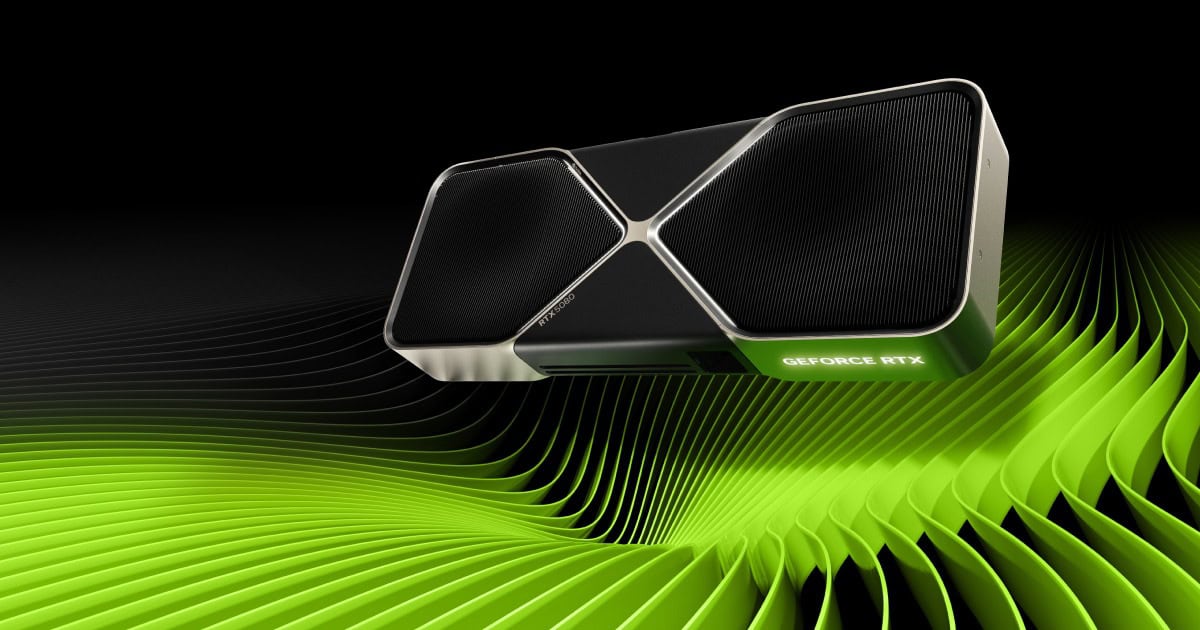
Pricing and Release Date
The NVIDIA RTX 5080 launches on January 30, 2025 with an MSRP of $999. This places it in the high-end segment, offering a significant performance upgrade over previous-generation cards like the RTX 4080 while remaining more affordable than the flagship RTX 5090.
Due to high demand and potential supply constraints, availability may vary depending on retailers and regions.
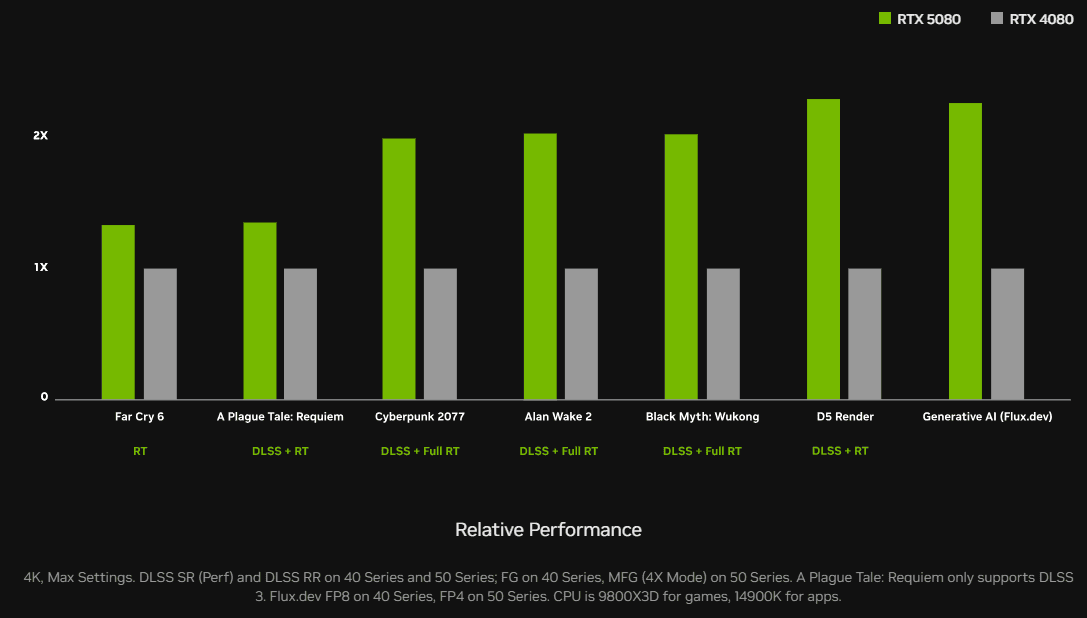
Key Takeaways
- The RTX 5080 launches January 30, 2025 with 16GB GDDR7 memory for $999
- Built on Blackwell architecture, it offers enhanced AI capabilities with DLSS 4
- Targets both gamers and creators with improved performance over previous generations
Overview of NVIDIA RTX 5080
The NVIDIA GeForce RTX 5080 represents a significant leap in graphics card technology. This GPU offers enhanced performance, advanced features, and improved efficiency compared to its predecessors.
Specifications
The RTX 5080 is built on NVIDIA’s Blackwell architecture. It features 16GB of GDDR7 memory, providing ample capacity for high-resolution textures and complex 3D models. The GPU’s memory interface is 256-bit, enabling fast data transfer between the GPU and memory.
CUDA cores are a key component of the RTX 5080. These parallel processors handle general-purpose computing tasks. The card also includes specialized Tensor cores for AI computations and RT cores for ray tracing calculations.
The RTX 5080’s TGP (Total Graphics Power) is expected to be around 320W. This indicates a balance between performance and power efficiency.
Technological Advancements
DLSS 4 (Deep Learning Super Sampling) is a standout feature of the RTX 5080. This AI-powered technology upscales lower resolution images to higher resolutions, improving performance without sacrificing visual quality.
Ray Reconstruction is another innovative technology in the RTX 5080. It enhances ray tracing performance, creating more realistic lighting, shadows, and reflections in games and 3D applications.
The RTX 5080 also introduces Multi Frame Generation. This feature uses AI to generate additional frames between rendered frames, resulting in smoother gameplay and reduced input lag.
Comparative Analysis
The RTX 5080 offers significant improvements over its predecessor, the RTX 4080. It provides better ray tracing performance and more efficient DLSS capabilities.
Compared to the higher-end RTX 5090, the 5080 offers a more balanced price-to-performance ratio. It delivers excellent 4K gaming performance at a lower cost.
The RTX 5080 outperforms the RTX 5070 and 5070 Ti in terms of raw power and features. However, these lower-tier cards may offer better value for users with less demanding graphics needs.

